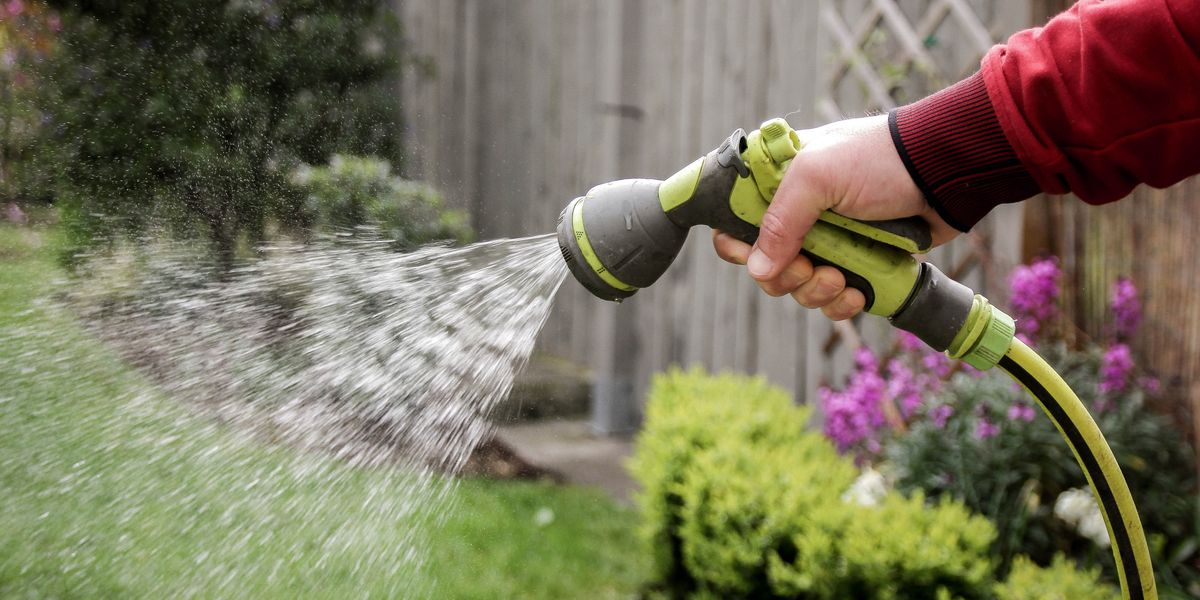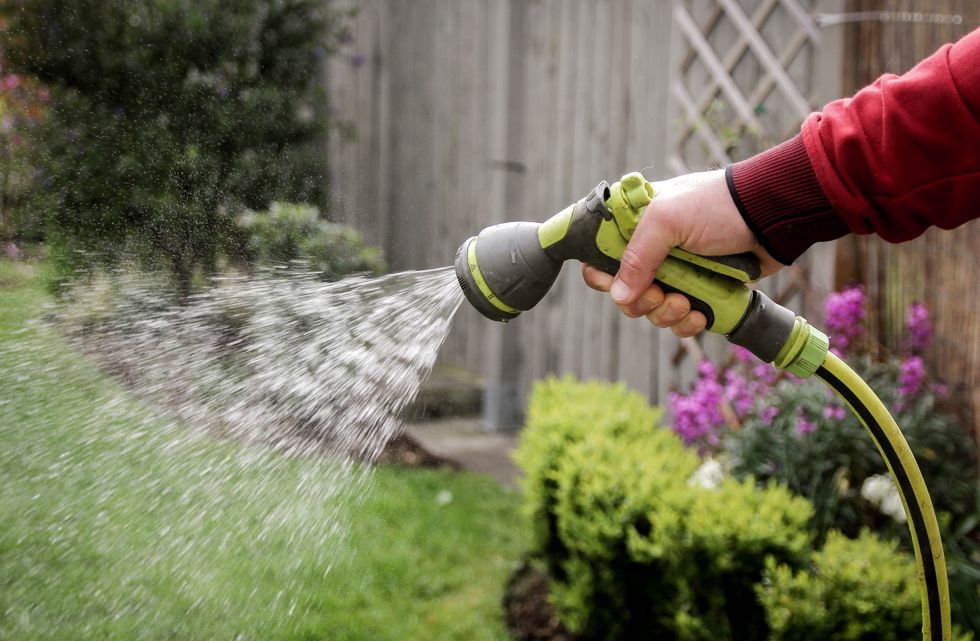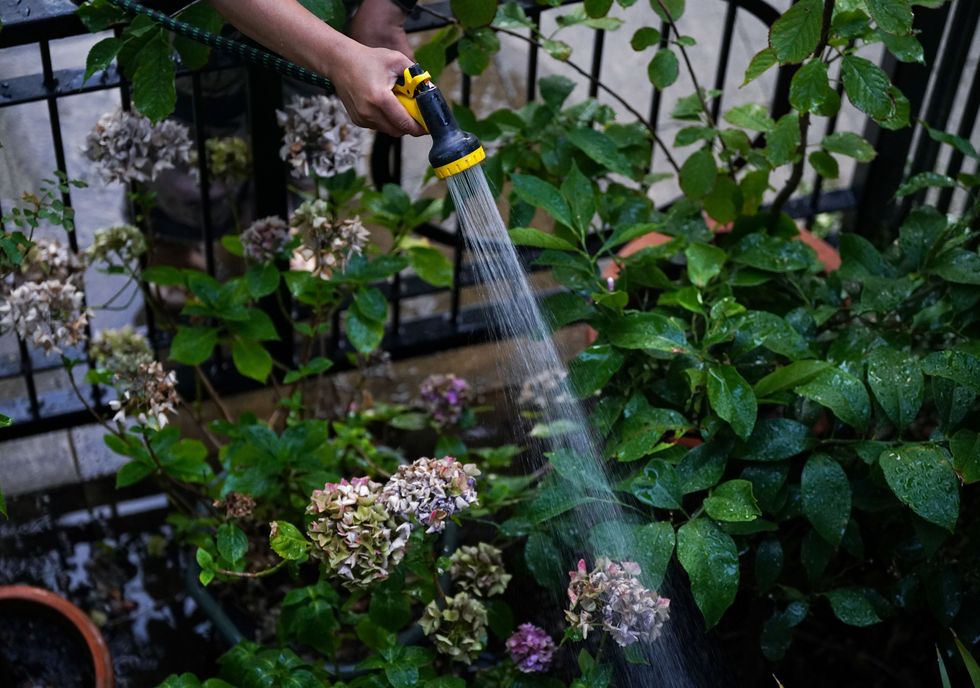



More than 1.4 million people have been told that they face fines of up to £1,000 as a hosepipe ban comes into effect across large swathes of England today.
South East Water said the move was due to demand for drinking water which had reached "record levels" since May amid extended periods of warm and dry weather.
The firm said the ban was temporary and will affect homes in Kent, East Sussex and West Sussex.
People will face £1,000 fines if they are found to be using hosepipes for watering their gardens, washing cars, windows and patios, or filling swimming and paddling pools.
South East Water's water resources head Nick Price told the BBC the firm was "trying to take the pressure off the drinking water supply so there's enough for everyone".
"Prosecution is very much a last resort," he added.
"I'm pleased to say most people are really understanding and have done what they need to do."
South East Water said it had seen the highest levels of water usage so far this year as of June 30.
 GETTY |
GETTY |
A hosepipe ban affecting more than 1.4 million people has started today
It had reached 680 million litres - 105 million litres of water a day more than the summer average.
The firm added that it monitored the situation in its western region, where it serves customers in parts of Surrey, Hampshire and Berkshire.
Price said: "We're keeping a really close eye on the forecast."
Some residents said the firm should turn to other measures before punishing its customers.
 PA |
PA |
Some residents believe the firm is punishing its customers
Tonbridge local Dina Bonarius said watering her garden would take an extra hour and a half as the ban would require her to use a watering can.
She called for South East Water to fix all its leaks as soon as possible, adding: "We're doing all we can to save water, so why aren't they?"
The UK has experienced three heatwaves this year, with the BBC Weather Centre confirming July 1 was the hottest day so far.
That comes as Faversham in Kent recorded 35.8C.
The Environment Agency said some areas of the UK were in drought or a state of prolonged dry weather after England experienced the second driest spring on record.
It was the sixth worst in UK history.
An agency spokesman said periods of dry weather can increase wildfires, severely damage vulnerable areas of heathland and moorland.
"Crop failure is also a major impact of drought while low water levels make navigation difficult on canals and some rivers," the spokesman said.
It is still unclear when the bans will be lifted.
Whether other areas will come under similar restrictions is yet to be decided.
